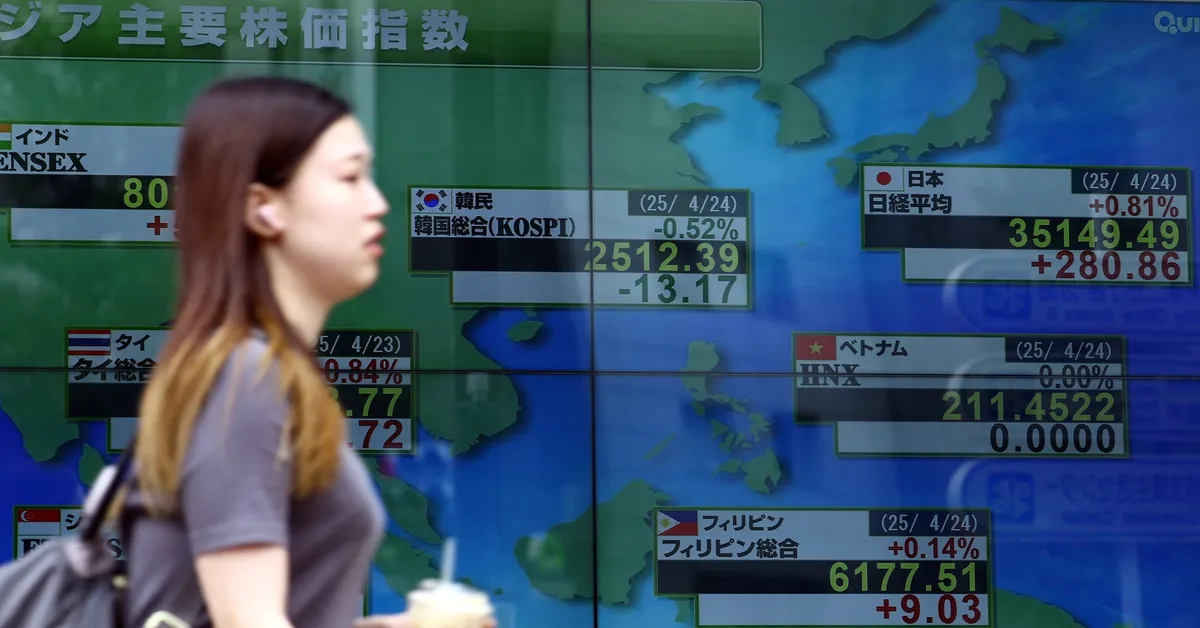
On August 29, 2023, global stock markets experienced a slight pullback from their recent record highs, primarily driven by the technology sector. This market movement comes as traders await crucial U.S. inflation data that will significantly influence the Federal Reserve's interest rate policies. The current economic climate has been marked by a robust month for global equities, even as concerns mount over the bond market, particularly following President Donald Trump's controversial decision to attempt to remove Fed policymaker Lisa Cook, amidst ongoing political unrest in France.
According to Michael Metcalfe, Head of Global Macro Strategy at State Street, this marks the first instance in a considerable period where political risk is becoming a prominent factor in the market. Metcalfe noted that international investors have been actively injecting capital into the region, raising questions about whether to embrace fiscal risk in the eurozone or to contend with the independence risks of the dollar, particularly in light of the Federal Reserve's recent challenges.
This week, key European bond yields, particularly for 30-year bonds, are anticipated to record their most significant monthly increases since March. The most pronounced changes have been observed in France, where Prime Minister Francois Bayrou has called for a confidence vote scheduled for September 8, which many analysts predict he will lose. As a result, the premium that France pays over Germany for 10-year debt has risen to 78 basis points, a significant increase over the past two weeks.
As global markets remain in flux, attention now shifts to the upcoming release of the U.S. PCE price index data— the Federal Reserve's preferred gauge of inflation. Khoon Goh, the head of Asia research at ANZ, emphasized that analysts will closely monitor whether the effects of recent trade tariff increases are becoming evident in the data. This release is one of three crucial data points ahead of the September Federal Open Market Committee (FOMC) meeting, alongside the upcoming payroll numbers and the Consumer Price Index (CPI) reading.
Traders are currently pricing in an 85% probability of a rate cut by the Federal Reserve in September, a notable increase from just 63% a month prior, according to the CME FedWatch tool. Fed Governor Christopher Waller expressed his intention to initiate interest rate cuts next month, anticipating further reductions to align the Fed's policy rate more closely with a neutral stance.
In currency markets, the euro dipped by 0.1% to $1.1677, influenced by rising political and fiscal uncertainties in France. The British pound also fell 0.2% to $1.3477, although it remains on track for a monthly gain exceeding 2%. Meanwhile, the U.S. dollar faces challenges stemming from concerns about the Federal Reserve's independence, particularly as President Trump intensifies his efforts to influence monetary policy, including his recent attempt to dismiss Fed Governor Lisa Cook, who has since filed a lawsuit asserting that Trump lacks the authority to remove her.
In the commodities market, oil prices declined on Friday, with Brent crude futures falling by 0.6% to $68.20 per barrel, while U.S. crude dropped to $64.21 per barrel. Gold, often considered a safe-haven asset, was down by 0.2% to $3,408.78 an ounce. Additionally, Bitcoin saw a 2% decrease, trading just below $110,000 per dollar.
This report was compiled by Rae Wee in Singapore and edited by William Maclean, adhering to the Thomson Reuters Trust Principles. The article features insights from Marc Jones, a senior global markets correspondent based in London, specializing in economics, central banks, and market crises.